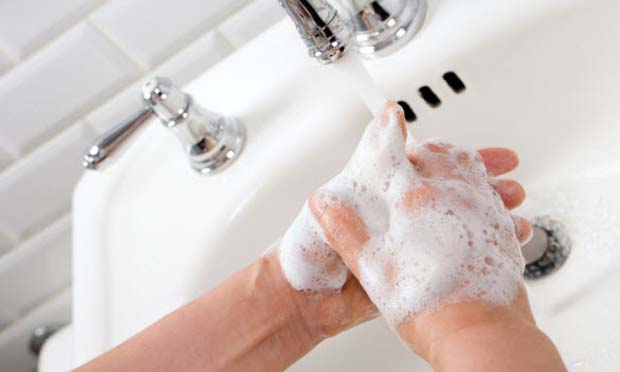The compound triclosan was introduced in the 1980s as an antibacterial surgical scrub in hospitals. In recent years, however, it has been used in a wide variety of household products, including shaving cream, deodorant, skin-care treatments, toothpaste and especially antibacterial soaps. Bisphenol A (BPA) is a compound used in many plastics, including protective linings found in food cans.
What triclosan and BPA have in common is their ability to mimic or interact with human hormones. A 2011 study by the University of Michigan, “The Impact of Bisphenol A and Triclosan on Immune Parameters in the U.S. Population,” looked at the compounds’ potential negative effects on human health. Using data from the National Health and Nutrition Examination Survey of 2003-2006, researchers compared BPA and triclosan levels in the body with cytomegalovirus antibody levels and allergies or hay fever diagnoses, two indicators of immune-system impacts.
The study’s findings included:
- People over 18 with higher levels of BPA exposure had higher levels of cytomegalovirus antibody, indicative of a compromised immune system
- People age 18 and under with higher levels of triclosan were more likely to report allergies and hay fever
The principal investigator on the study, Allison Aiello, said to ScienceDaily, “The triclosan findings in the younger age groups may support the ‘hygiene hypothesis,’ which maintains living in very clean and hygienic environments may impact our exposure to micro-organisms that are beneficial for development of the immune system,” adding, “It is possible that a person can be too clean for their own good.”
The researchers suggested that the next step is a study of the long-term effects of BPA and triclosan in people to determine if a causal relationship can be established.
Related research: A 2007 study, Consumer Antibacterial Soaps: Effective or Just Risky?, from the University of Michigan, found that antibacterial soaps showed no benefits over plain soaps and could cause common antibiotics such as amoxicillin to become less effective.
Keywords: consumer affairs, medicine, safety


Expert Commentary